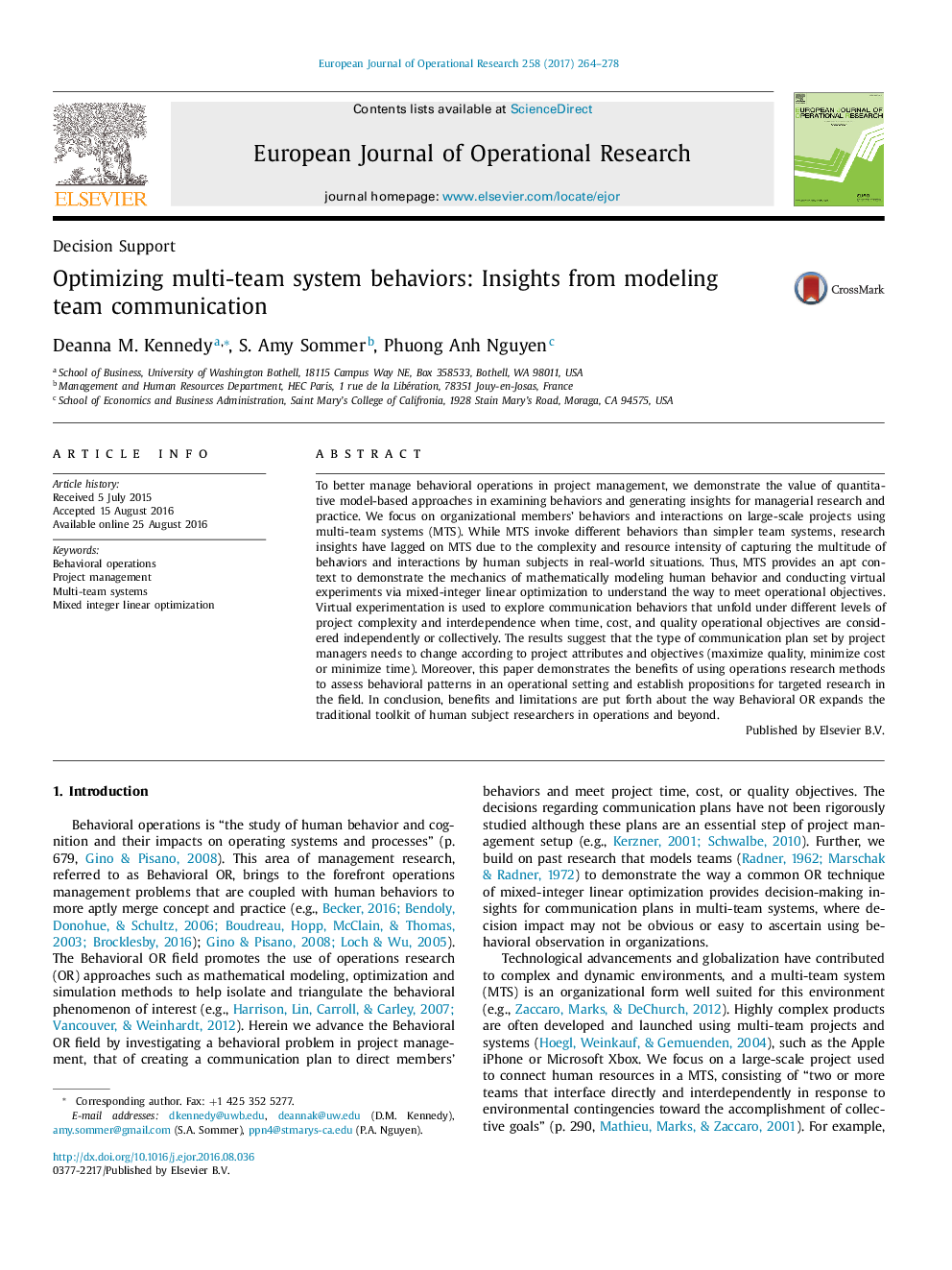ترجمه فارسی عنوان مقاله
بهینه سازی رفتارهای چند تیمی: بینش از ارتباطات تیم مدل سازی
عنوان انگلیسی
Optimizing multi-team system behaviors: Insights from modeling team communication
| کد مقاله | سال انتشار | تعداد صفحات مقاله انگلیسی |
|---|---|---|
| 94938 | 2017 | 15 صفحه PDF |
منبع

Publisher : Elsevier - Science Direct (الزویر - ساینس دایرکت)
Journal : European Journal of Operational Research, Volume 258, Issue 1, 1 April 2017, Pages 264-278
ترجمه کلمات کلیدی
عملیات رفتاری، مدیریت پروژه، چند تیم سیستم، بهینه سازی خطی زنجیره ای مختلط،
کلمات کلیدی انگلیسی
Behavioral operations; Project management; Multi-team systems; Mixed integer linear optimization;

